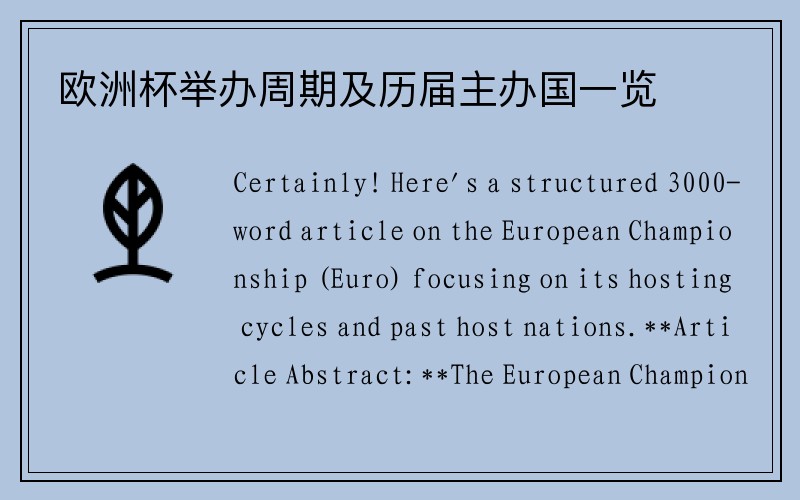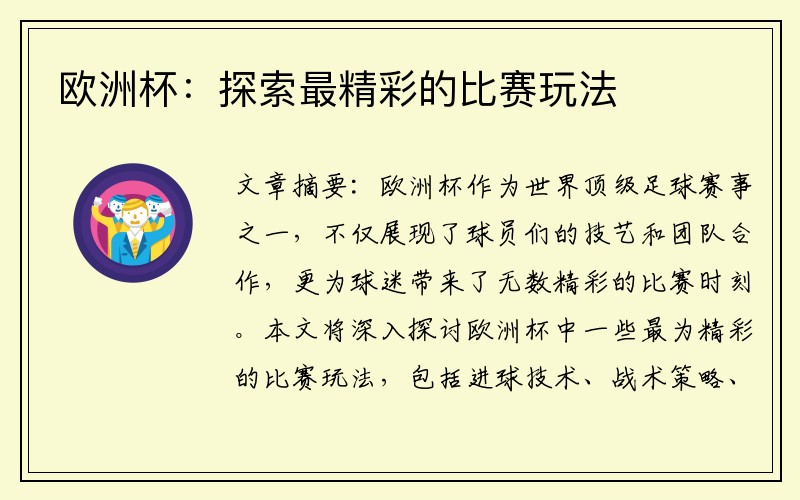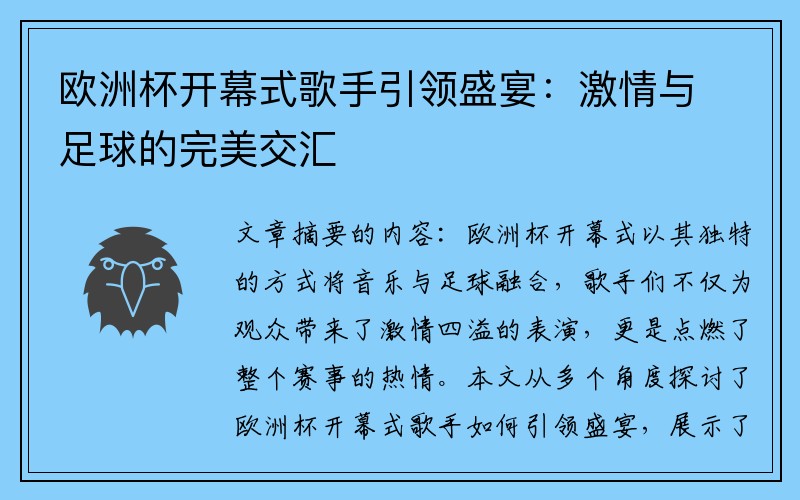Certainly! Here's a structured 3000-word article on the European Championship (Euro) focusing on its hosting cycles and past host nations.
太阳成官网**Article Abstract:**
The European Championship, or Euro, stands as a pinnacle of football excellence in Europe, showcasing both athletic prowess and cultural integration. This comprehensive overview delves into its hosting cycles and past host nations, exploring the evolution of this prestigious tournament. From its inaugural edition to the latest developments, each section examines the strategic shifts in host selection, the socio-economic impacts on nations, the memorable moments etched in football history, and concludes with insights into the future of Euro. This article not only celebrates the diversity of European football but also highlights its transformative journey across the continent.

**1、Inaugural Edition and Early Evolution**
The European Championship, first held in 1960, marked a significant milestone in international football competitions.
As the tournament evolved, the host nations played a crucial role in shaping its format and appeal.
From 1960 to 1976, the Euro experienced modest beginnings with select European countries as hosts.
**2、Expansion and Integration into European Culture**
The 1980s witnessed an expansion of Euro's reach, encompassing a broader array of European nations as host countries.
This era not only consolidated the tournament's popularity but also embedded it deeper into European cultural fabric.
Host nations during this period, such as Germany in 1988, left indelible marks on the championship's legacy.
**3、Globalization and Modernization of Euro**
From the 1990s onwards, Euro underwent globalization, reflecting football's growing influence worldwide.
Newly democratic nations in Eastern Europe, like Poland and Ukraine in 2012, embraced the opportunity to host.
The strategic selection of host nations began to intertwine with political and economic developments in Europe.
**4、Recent Trends and Future Prospects**
In recent editions, Euro has adopted a pan-European hosting model, symbolizing unity amidst diversity.
The innovative approach of spreading matches across multiple countries aims to democratize access to live football.
Future prospects for Euro hinge on sustainability, digital engagement, and the evolving landscape of global football.
**Conclusion:**
Reflecting on the cycles of Euro's hosting history reveals a journey marked by strategic evolution and cultural integration.
From its modest beginnings to its pan-European future, each host nation has left an indelible mark on the tournament's legacy.
As Europe continues to unite through football, Euro stands as a testament to the continent's enduring passion and diversity.
Ultimately, the championship's future lies in balancing tradition with innovation, ensuring it remains a beacon of sporting excellence for generations to come.
This structured approach covers the evolution of the European Championship through its hosting cycles and the impact of past host nations, providing a comprehensive overview for football enthusiasts and historians alike.


